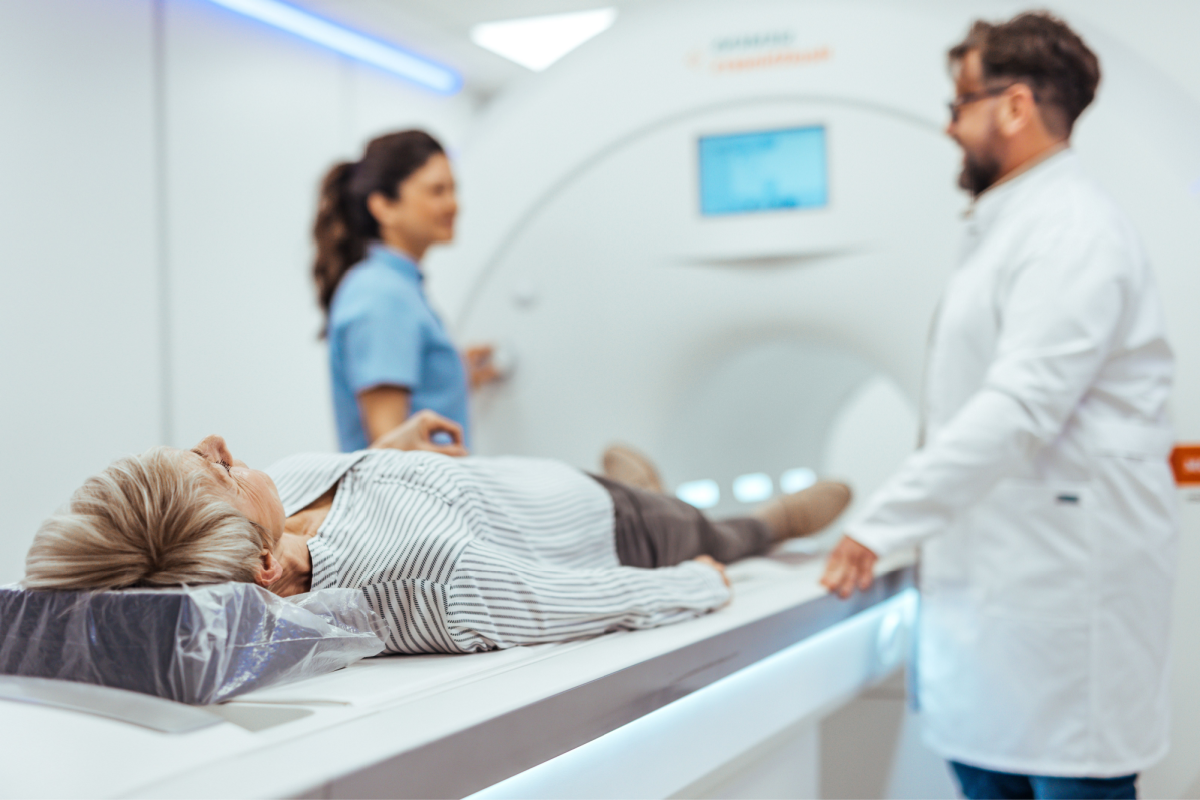GE HealthCare’s SIGNA MAGNUS 3.0T magnetic resonance imaging (MRI) system, a head-only MRI scanner designed specifically for advanced neuroimaging, has been cleared by the US Food and Drug Administration (FDA).
Unlike traditional whole-body MRI scanners, the SIGNA MAGNUS is tailored exclusively for imaging the brain and central nervous system (CNS), focusing on capturing intricate details required in neuroscience and clinical diagnostics.
The system’s compact, head-only design incorporates an innovative asymmetrical gradient coil, which provides greater imaging power within a reduced diameter. This configuration enhances image quality and reduces scan time, a benefit that not only optimizes patient comfort but also supports precision in diagnosing neurological conditions.
Jason Polzin from GE HealthCare highlighted that SIGNA MAGNUS offers specialized imaging capabilities that go beyond what standard MRI systems can achieve. He noted that this technology will enable neurologists and researchers to explore new biomarkers, advancing research into neurodegenerative diseases, psychiatric conditions and other critical areas of brain health.
XTALKS WEBINAR: Unlock Growth in Medical Device Manufacturing with an AI-Powered eQMS
Live and On-Demand: Monday, December 9, 2024, at 11am EST (4pm GMT/UK)
Register for this free webinar to unlock the potential of AI in quality management and propel medical device manufacturing into the future.
A unique feature of the SIGNA MAGNUS is its asymmetric gradient coil technology, HyperG, which shifts the imaging center closer to the patient’s head. This positioning bypasses common limitations in whole-body systems, allowing the scanner to reach high gradient strengths that reveal subtle brain structures essential for advanced neuroimaging studies.
The HyperG gradient coil delivers impressive metrics, achieving 300 millitesla per meter (mT/m) in gradient amplitude and 750 tesla per meter per second (T/m/s) in slew rate. This translates to faster image acquisition with fewer artifacts, improving scan quality and enhancing patient safety by minimizing nerve stimulation during imaging.
For patients, the SIGNA MAGNUS offers quicker scan times and enhanced image clarity, especially valuable for those who may struggle with remaining still or who experience claustrophobia. These improvements lead to more accurate diagnoses and better treatment planning for various neurological conditions.
Kawin Setsompop from Stanford University plans to leverage the system to examine brain microstructures, particularly small but critical elements like axonal diameter. He also anticipates that the system’s gradient performance will improve data acquisition efficiency, supporting higher-resolution imaging with fewer artifacts.
Soon to be available as a new purchase and as an upgrade for compatible SIGNA Premier systems, SIGNA MAGNUS offers healthcare providers an accessible pathway to integrate this cutting-edge technology. The systems could advance both clinical and research applications in neuroimaging.
GE HealthCare’s commitment to diagnostic accessibility is evident by their recent advancements across several imaging fields. The company debuted Flyrcado, the first positron emission tomography (PET) myocardial perfusion imaging agent of its kind for detecting coronary artery disease, supporting improved cardiovascular diagnostics.
GE HealthCare also launched two more recent initiatives to meet rising healthcare demands and enhance imaging capabilities. In collaboration with RadNet’s DeepHealth, the companies are integrating their AI-driven SmartTechnology solutions, starting with SmartMammo and the Senographe Pristina system to boost accuracy and efficiency in breast cancer screening.
In the second initiative, GE HealthCare will join AMN Healthcare to address the radiologic technologist shortage, training new radiology techs in GE’s imaging technologies to ensure consistent access to skilled imaging professionals.
Expanding its neuroimaging portfolio, GE HealthCare’s MIMneuro software recently secured FDA clearance for its Centiloid scaling tool, a standardized metric for assessing amyloid plaque density in PET scans for Alzheimer’s evaluations, further supporting diagnostic precision in neurodegenerative diseases.












Join or login to leave a comment
JOIN LOGIN